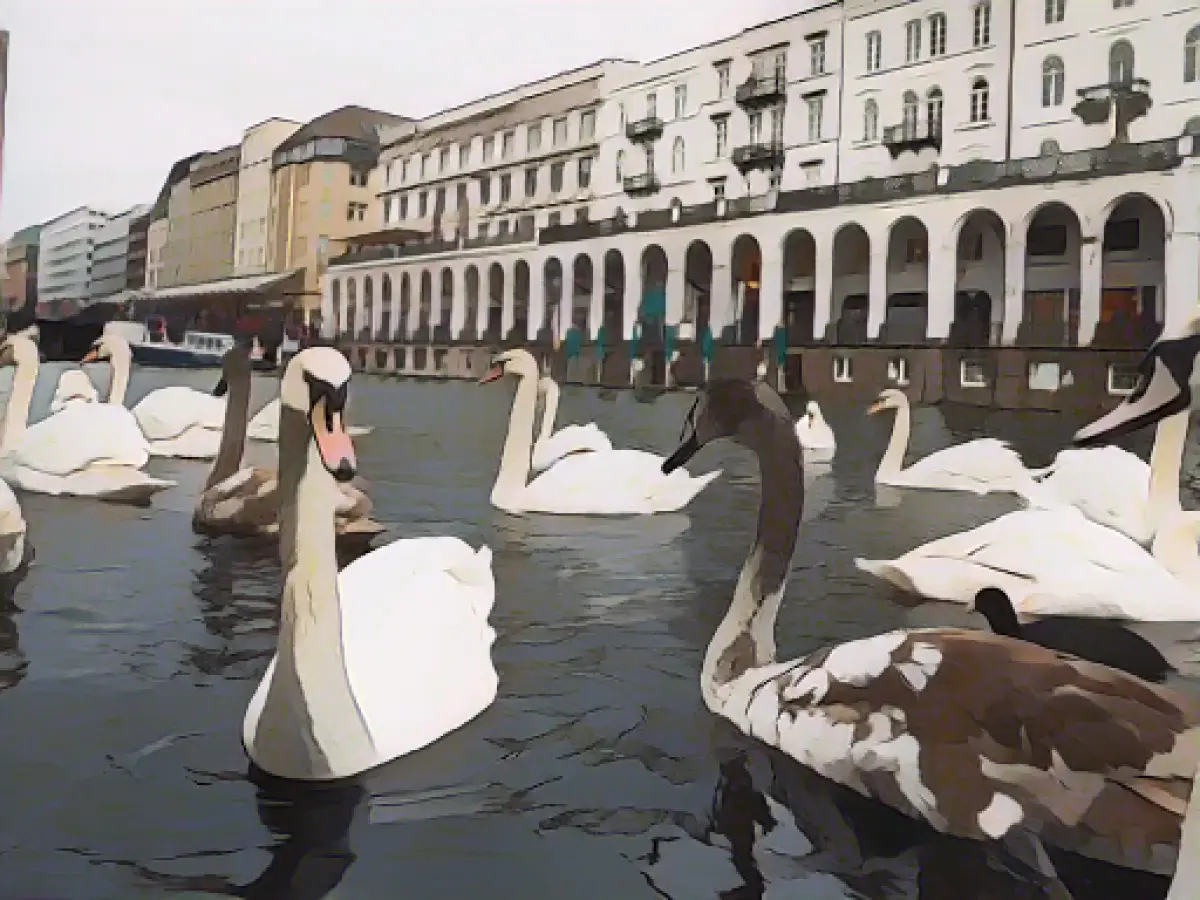Swans Wave Goodbye to the Outer Alster
It's time for the Hamburg Alster swans to bid farewell to their summer haunts and head to their winter quarters. The first batch of these iconic birds was recently transported by Olaf Nieß and his swan team from Hamburg's Swan Department, drawing a large crowd of curious spectators. Some swans were cozily nestled on straw inside the boat, while others accompanied their feathered friends to their Eppendorfer Mühlenteich winter home.
These swans will be spending the colder months under a protective tent in an attempt to safeguard them against the potential threat of bird flu. Olaf and his team will also look after them diligently during their stay. The remaining swans, who spent their summer roaming the intricate network of tributaries, will be collected in the following days. It's estimated that roughly 80 Alster swans will spend their winter at Mühlenteich.
The Alster swans hold a special place in Hamburg's heart as they have been cherished and nurtured in this city for hundreds of years. The Hamburg Swan Department, established in 1674, plays a crucial role in caring for the swans during their winter quarters and maintaining their rich customs. Visitors often gather to witness the traditional collection process that transfers the swans to their winter residence.
Protecting Swan Populations from Disease
While specific details about the Hamburg Swan Department's practices might not be publicly available, several measures are often employed to safeguard swan populations against diseases like bird flu. These measures include regular health checks, vaccination programs, environmental management, sanitation and hygiene, and public education to promote responsible interaction with the swans.
- Monitoring and Vaccination: Regular monitoring of swan populations to detect any signs of illness is vital. Vaccination programs are implemented during peak flu seasons to keep the swans protected.
- Quarantine and Isolation: Sick swans are quarantined and isolated to prevent the spread of disease to other birds.
- Sanitation and Hygiene: Keeping the swans' living areas clean, free from contamination, and providing regular cleanings of water and feeding areas is essential.
- Health Checks: Regular health checks, such as blood tests and physical examinations, help identify infected birds.
- Environmental Management: Managing the environment to reduce stress on the swans and boost their immune systems can help decrease the risk of disease.
- Education and Awareness: Educating the public about not feeding wild swans and keeping a safe distance from them can further protect the swan population.
Although specific practices employed by the Hamburg Swan Department are not disclosed, these general safeguards are commonly used to shield swan populations from bird flu and other potential health threats[1][2].






